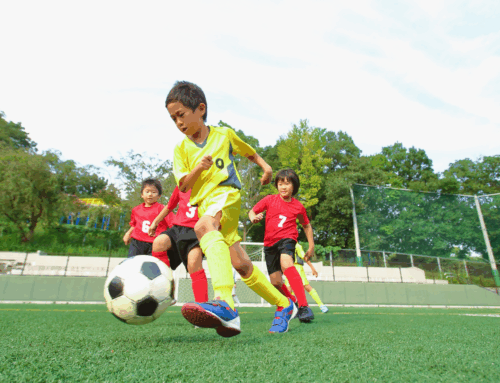Get our exclusive report. Download the iSport360 Club Switching Report Here – For Club Admins, Rec Leaders and Coaches.
Why is there a Decline in Female Coaches?
In the dynamic world of youth sports, coaching plays a crucial role in shaping young athletes not only as players but as individuals. However, a concerning trend has emerged over the past years – a decline in female youth sports coaches. In this blog post, we’ll explore the reasons behind this decline, and its implications, and discuss potential solutions to bridge the gender gap in coaching.
The Current Landscape of Female Coaches
Historically, female coaches have been underrepresented in youth sports. While strides have been made to promote inclusivity, the numbers indicate a persistent decline. According to recent studies, only about one-third of all youth sports coaches are women. This decline raises questions about the factors contributing to the gender gap in coaching opportunities for women.
Factors Contributing to the Decline
Lack of Representation
One of the primary challenges is the scarcity of female coaching role models. When young girls do not see women in coaching positions, they may not envision coaching as a viable career path. Representation matters, and the absence of female coaches can perpetuate stereotypes about gender roles in sports.
Limited Networking Opportunities
Coaching positions often require a network of connections within the sports community. The traditional dominance of male coaches can create an environment where women have fewer networking opportunities, hindering their access to coaching roles.
Gender Stereotypes
Persistent stereotypes and biases surrounding gender roles in sports contribute to the reluctance of some institutions to hire female coaches. Unfounded perceptions about coaching abilities based on gender can discourage women from pursuing coaching careers.
Balancing Act
The demanding nature of coaching, with irregular schedules and extensive travel, can be a deterrent for women who are often expected to juggle family responsibilities. Achieving a balance between coaching commitments and personal life remains a significant challenge for many female coaches.
The Implications
The decline in female youth sports coaches has far-reaching consequences, impacting both coaches and athletes.
Role Model Void
Young female athletes benefit significantly from having female coaches who can serve as mentors and role models. The absence of these role models can limit the aspirations of young girls in sports.
Lack of Diverse Coaching Styles
Female coaches bring unique perspectives and coaching styles that contribute to a more diverse and inclusive coaching environment. The decline in their presence limits the diversity of coaching methods and approaches.
Missed Opportunities for Talent Development
Limiting coaching opportunities for women means missing out on the talent, expertise, and fresh perspectives they can bring to the development of young athletes. A diverse coaching staff enhances the overall quality of coaching and player experiences.
Addressing the Decline in Female Coaches
Promoting Visibility and Representation
Initiatives to highlight successful female coaches and their achievements can inspire the next generation. Increased visibility through media coverage and mentorship programs can help break down gender stereotypes.
Networking and Mentorship Programs
Creating mentorship programs and networking opportunities specifically for women in coaching can help build a supportive community. Establishing connections with experienced female coaches can provide guidance and open doors to coaching roles.
Changing Perceptions
Efforts must challenge and change stereotypes about gender roles in sports. Education and awareness campaigns can emphasize that coaching skills are not gender-specific and should be evaluated based on merit.
Flexible Coaching Models
Implementing more flexible coaching models that accommodate family responsibilities can help address the challenges women face in balancing coaching careers with personal lives.
Addressing the decline in female youth sports coaches is crucial for fostering a more inclusive and diverse sports environment. By breaking down barriers, challenging stereotypes, and providing equal opportunities, we can create a landscape where aspiring female coaches feel supported and empowered to contribute their skills and perspectives. Ultimately, a more balanced coaching representation benefits not only coaches but also the young athletes who look up to them as they navigate the exciting world of youth sports.
iSport360 is the only app that does it all for youth sports. For more information on what we do, click here.
About the author:
Amy Masters is a sports mom, coach, and club administrator. She has been coaching youth sports for more than 10 years. She started Jr Lions Field Hockey, the youth recreation program for the Hunterdon County community growing it from 40 players in year 1 to 150 players by year 3. A few years later, she saw the love and competitiveness grow then started Omega Field Hockey Club serving NJ and PA players. Before coaching, she was a collegiate field hockey player for Lock Haven University. In her spare time (lol), she is head of marketing for iSport360, where she brings her love of sports to a bigger audience.
Learn more or request a demo of our youth sports software that is helping teams improve communication, organization and player development.
January 24, 2024





